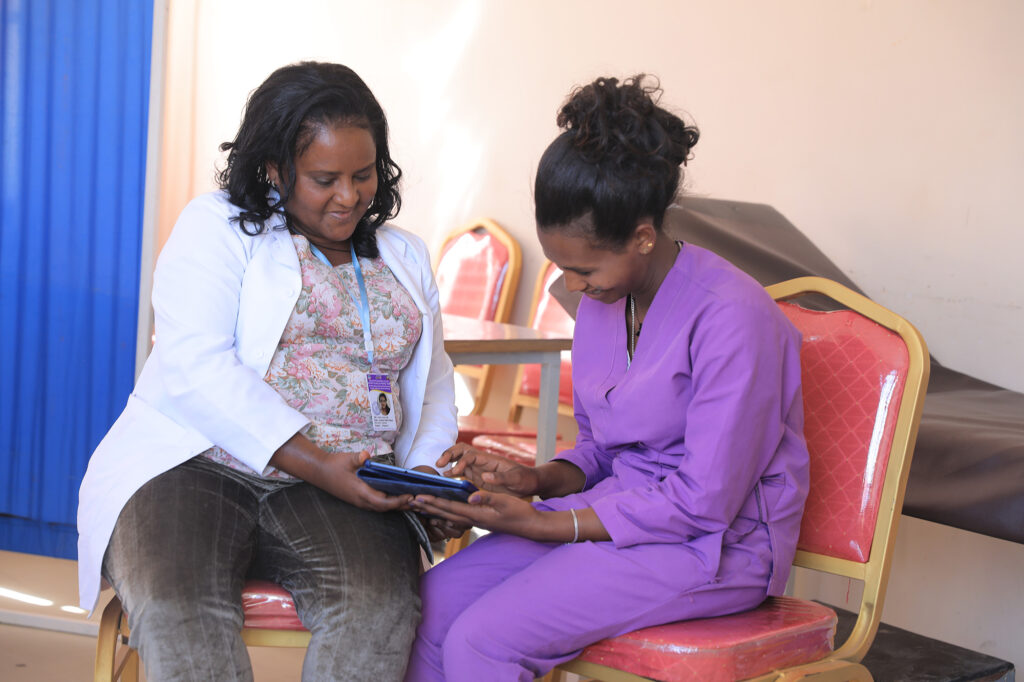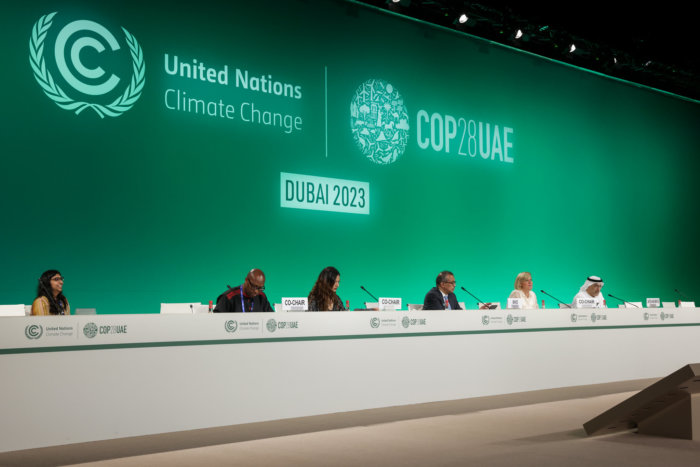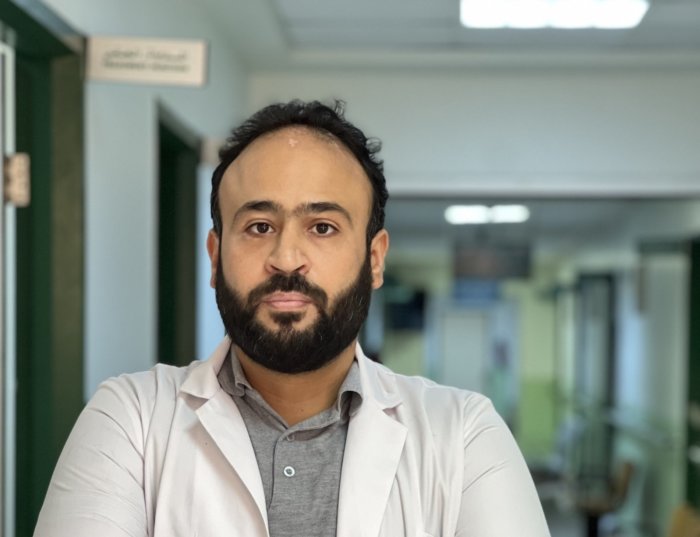The Conversation, with Emanuele Capobianco
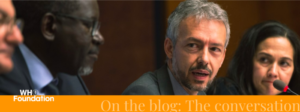
In our new blog series, “The Conversation”, we discuss how we can co-create agile and impactful interventions for a healthier world. Meet Emanuele Capobianco. Appointed in September as Chief Strategy and Impact for the WHO Foundation, he brings over 20 years of experience in health as a senior executive in various organizations like the International Federation of Red Cross and Red Crescent Societies, WHO, UNICEF, and The World Bank. We explored what it means to be impactful, his biggest accomplishments, and what he hopes for the future of global health.
After over 20 years of very extensive experiences in different global organizations, the question we could ask ourselves is why? And why now?
The WHO Foundation can truly be a catalyst and a disrupter for the biggest transformations in global health that are most needed to confront future challenges. And why now? Because now we are still in the infancy of the Foundation, and I love the idea of building something from scratch and working in a very agile team. I am fond of the idea of this startup model, all while working to strengthen the valuable work of the World Health Organization (WHO), a 70-year old organization that I highly respect. It is a very healthy balance to build a healthier world together.
Emanuele, what are your expectations for this role and what are the three words you would use to describe it?
I would say I am a supporter, an enabler and I have a good technical eye.
I support the mission of the WHO, enable its work with external funders and as a technical expert, I am working with the experts in WHO to jointly identify investment opportunities that will have the maximum impact.
Would you say it was something lacking in your previous roles in bigger organizations?
The WHO Foundation has already proven to be lean, flexible, and able to innovate fast. The opportunity to have that agility while making a global impact is exciting.
What is your vision for the future of our focus areas?
We are at the beginning stages of our strategy’s development and we are identifying the critical areas where the Foundation will support the WHO to make the greatest impact.
And some of these initiatives are extremely attractive to me personally, as I come from a humanitarian background. The fact that our first focus is on Emergency Preparedness and Response is very welcomed. Given the role that WHO has played in COVID-19 and previous emergency responses like Ebola, this is a space that can only grow.
The second axis is Climate Change and Health. The frequency and intensity of increasingly extreme events all over the world create a need to get the world better prepared. We not only need to implement adaptation strategies, but we should also play a role in reducing emissions in the health sector and in other sectors that have an impact on our health. WHO is a critical bridge between climate and health.
Another area that has been very dear to my heart for decades is Mental Health.
COVID-19 has exacerbated the universal nature of the problem. Across all ages, nations, and races, mental health issues involve all of us. In a world that is becoming more complex and challenging, we really need to take care of that. I look forward to working on this with the experienced colleagues at the WHO.
Other exciting areas include digital health: we want to look at the problems above, climate change, mental health, emergencies, and find out how we can harness digital innovations to improve health outcomes. Whether it is, opening access for mental health consultations through digital tools, or collecting data for better predictability and forecasting for pandemics or natural disasters, the possibilities are endless.
Last but not least, we want to focus on equity as a principle and an approach that cuts across all other areas.
It is a vast agenda, so we will focus on areas with the biggest impact. It is a thrilling role to play in the ecosystem.
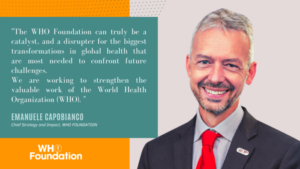
How will the focus areas for health interventions be defined?
We are in the process of defining it. We are working very closely with WHO and thematic experts, not only to determine how we’ll be most impactful but also how to get the resources to finance those focus thematics.
Within a three to six months timeline, we hope to have a clear idea of specific areas and projects to fund. Then comes fundraising, and implementation. We are very keen to ensure investments are carefully assessed for impact: this is an area that we will be prioritizing in 2022.
Are there any other key areas that need to be examined to transform global health today?
As we are opening the process of consultations, the aforementioned are some of the hypotheses that we have put forward, and we look forward to the insight of others in WHO and external partners.
The beauty of being the WHO Foundation is that we are a new lean organization that is truly open to feedback. We may have some other areas of interest, but we are here to listen, and not take a top-down approach. And that’s part of my commitment: to listen to what people have to say, at all levels with equal weight.
How has COVID-19 changed the way health interventions are delivered?
Start with the people. Avoid top-down approaches and listen to the needs of people.
Secondly, put equity at the center and at the very start of every program. If you don’t do that, a very good thing (e.g. COVID-19 vaccination worldwide) can lead to a highly uncomfortable outcome (the vaccine inequity we are witnessing in the world). Thirdly, we must work on prevention and preparedness instead of being systemically reactive. Health systems are currently set up to take care of sick people. In ancient China, doctors were paid to keep the patient healthy. When the patient would get sick, they would no longer be paid until the patient got healthy again. It’s such a transformative approach. The approach should be more holistic and we should focus on all the components that allow people to stay healthy in the first place.
Lastly, technology is key. We have only scratched the surface of the potential of digital in solving or addressing global health problems. We need to harness that. That’s why we have digital health as part of our strategies.
What is your biggest achievement today – personal or professional?
I would say my three girls, but it’s a team effort from my wife and I.
From a professional standpoint, it is the fact that I have been able to continuously grow, by changing and taking risks. I am always moving the needle to my next level of incompetence, going into areas that are often uncomfortable and where the learning curve is steep.
And, although we don’t get instant gratification through public health, I know that whether it is through vaccination campaigns, distribution of bed nets, emergency response during the migration crisis, my work in Somalia and Afghanistan, or interventions during this COVID-19 crisis, I hopefully have had a positive impact on the lives of a large number of people.
Do you have a personal mantra you live by?
Yes, it is inspired by the Dalai Lama: “If you’re worried about something and you can do something about it, do it. If you are worried about something and you cannot do anything about it, don’t worry.”
LAURA EBOA SONGUE
